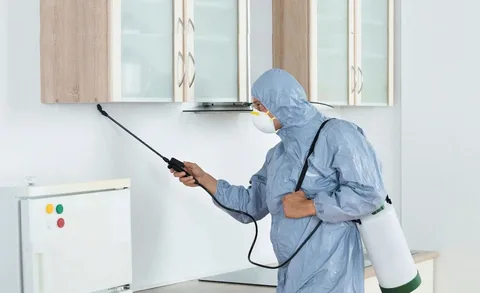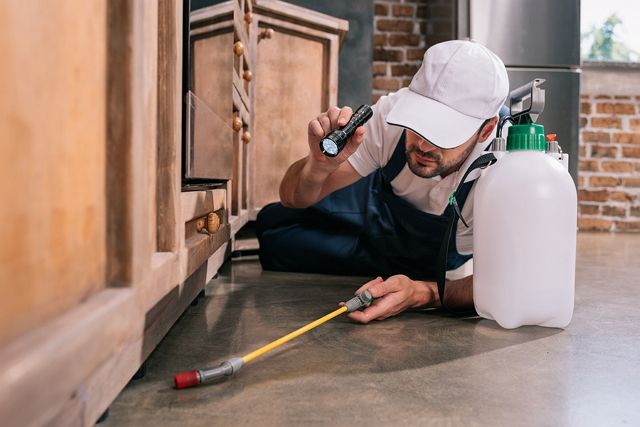How to Choose the Best Pest Control Service for Your Home
Keeping your home safe, clean, and free from pests is crucial for health and peace of mind. Pest infestations can lead to structural damage, spread diseases, and compromise the quality of living. When it comes to choosing a pest control service, finding the right company can make all the difference. This guide will help you understand what to look for when selecting a pest control service, the types of treatments available, and how to ensure you’re hiring a reputable provider.
Understanding Pest Control Needs
Before hiring a pest control service, it’s important to understand your specific needs. Are you dealing with a small infestation, or do you need extensive pest control for multiple types of pests? Common household pests like termites, cockroaches, ants, rodents, and bed bugs require specialized treatments. Determining the type of pest problem you have will help you choose the appropriate service.
Types of Pests Commonly Treated
Different pests require different methods of eradication. Here are some of the most common pests:
- Ants: Often require baiting systems or perimeter treatments.
- Cockroaches: Need chemical treatments and regular maintenance.
- Termites: Often require fumigation or termite barriers.
- Rodents: Trapping and baiting are common approaches.
- Bed Bugs: Typically treated with heat or insecticides.
By understanding what type of pests are in your home, you can better communicate your needs to a pest control company and assess their ability to address the issue effectively.
Qualities to Look for in a Pest Control Service
Not all pest control companies are created equal. Some may specialize in eco-friendly solutions, while others focus on industrial-grade pest removal. Knowing what qualities to look for can help you find a service that fits your needs and preferences.
Experience and Expertise
A pest control company’s level of experience plays a huge role in the quality of service you’ll receive. Look for companies with a proven track record, as well as technicians who are well-trained and certified. Experienced companies are better equipped to handle a variety of pest issues and can often offer more accurate diagnoses and effective solutions.
Licensing and Certification
Ensure that any pest control company you consider is licensed and certified by relevant authorities. In the U.S., the Environmental Protection Agency (EPA) oversees certain pest control standards, and individual states may have additional requirements. Certification indicates that the company adheres to industry standards and regulations, which helps protect your health and safety.
Insurance and Liability Coverage
Pest control can involve the use of toxic chemicals, so it’s crucial to work with a company that has insurance and liability coverage. This protects you from potential damages or injuries that may occur during the treatment process. If a pest control provider is insured, it also indicates they take their responsibilities seriously.
Different Pest Control Methods
The effectiveness and impact of pest control treatments can vary depending on the method used. The most common methods include chemical, biological, and organic solutions. Understanding these options can help you choose a company that aligns with your preferences.
Chemical Treatments
Chemical pest control uses pesticides to kill or repel pests. These treatments can be highly effective but may contain substances harmful to humans, pets, and the environment. Reputable companies will offer low-toxicity options and adhere to safety protocols when using chemical solutions.
Biological Pest Control
Biological pest control uses natural predators or pathogens to eliminate pests. This method is environmentally friendly and reduces the need for chemical treatments, though it may not be suitable for every type of pest problem.
Organic and Eco-Friendly Solutions
Organic pest control solutions rely on natural substances to deter pests, such as essential oils, diatomaceous earth, and traps. For those concerned about environmental impact, eco-friendly options provide a safer alternative to chemical treatments.
Evaluating Customer Reviews and Testimonial

Reviews and testimonials from previous customers can give you valuable insights into the quality of a pest control company’s services. Check popular review platforms, such as Google Reviews, Yelp, and the Better Business Bureau (BBB), to see what others have experienced. Look for companies with high ratings and positive feedback on punctuality, professionalism, effectiveness, and customer service.
Red Flags to Watch Out For
When reading reviews, be cautious of certain red flags. Consistent complaints about no-show appointments, poor communication, or unsatisfactory results should be taken seriously. Additionally, be wary of companies that receive frequent reports of hidden fees or unprofessional conduct.
Comparing Cost and Service Value
Pest control services can vary widely in price, depending on the type of pest, the severity of the infestation, and the treatment method. While cost is an important factor, it’s equally important to assess the value of service.
Getting a Detailed Quote
A reputable pest control company will provide a detailed quote that breaks down all services and costs. Avoid companies that provide vague estimates over the phone, as a proper assessment should include a visit to your home to inspect the infestation.
Evaluating Long-Term Service Plans
Some infestations, such as termites and bed bugs, may require long-term or multiple treatments. Many pest control providers offer service plans that include follow-up visits and maintenance treatments. These plans can offer peace of mind and may save you money over time.
Ensuring Health and Safety
Safety is paramount when using pest control treatments, especially if there are children or pets in your home. Discuss any concerns you may have with the pest control provider, including potential toxicity, ventilation requirements, and the duration you should avoid certain areas.
Environmental Impact and Safety Measures
Many pest control companies offer environmentally conscious solutions. If you prefer eco-friendly methods, ask about their green pest control options. Look for companies that practice Integrated Pest Management (IPM), which combines multiple pest control methods to reduce reliance on chemicals and protect the environment.
Pet and Child-Safe Practices
Certain chemicals can be harmful to pets and children, so be sure to confirm the safety precautions that the company employs. A trustworthy pest control company should be transparent about any risks and provide clear instructions for post-treatment safety.
Contract and Guarantee Terms
Before signing a contract, carefully review the terms, including the services provided, payment details, and any guarantees or warranties. Most reputable companies will offer a satisfaction guarantee or warranty on their services, which can provide reassurance and ensure you get the results you expect.
Flexibility and Customer Service
Look for companies that offer flexible service options and are responsive to customer needs. A company that provides excellent customer service and flexible contract terms is often more accommodating in case you need follow-up visits or have questions after treatment.
Conclusion: Making the Right Choice for Your Pest Control Needs
Choosing the best pest control service requires careful consideration of your specific pest issues, budget, and preferences for eco-friendly treatments. Evaluate each company’s experience, qualifications, safety measures, and reviews to ensure they meet your standards. By taking the time to research and compare options, you’ll be able to select a pest control provider that effectively addresses your needs and maintains the safety of your home and family.





